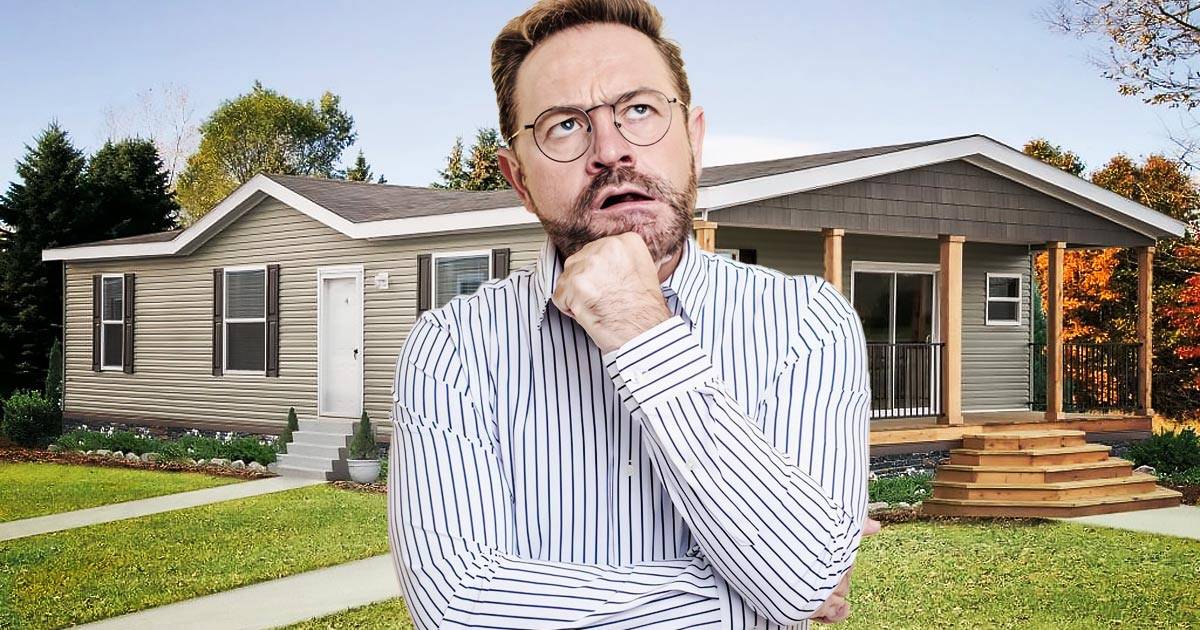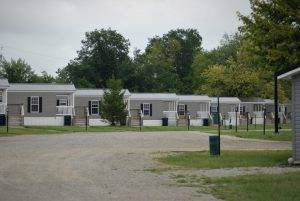How Long Should You Keep A Mobile Home & What To Do After

In the ever-evolving landscape of housing options, mobile or manufactured homes have emerged as a popular and cost-effective alternative to traditional houses. These homes, often affectionately referred to as “mobile homes” or “trailer homes,” offer unique advantages, including affordability and flexibility in terms of location. Yet, one question that prospective and current mobile homeowners often ponder is the lifespan of these dwellings. How long do mobile homes last? What factors influence their longevity, and how can you maximize the return on your mobile home investment? In this comprehensive guide, we will explore these questions and provide valuable insights into the lifecycle of mobile homes, including when it might be time to move on.
How Mobile Homes Differ from Traditional Homes
Before delving into the intriguing world of mobile home lifespans, it’s essential to understand how these homes differ from their traditional counterparts. Mobile homes, also referred to as manufactured homes, are constructed within a controlled factory setting before being transported to their ultimate location for assembly. This construction method contrasts with traditional homes, which are constructed on-site, piece by piece.
Mobile homes exhibit several distinctive characteristics:
- Construction – Manufactured homes are primarily constructed using wood and metal, materials common to traditional homes. The difference lies in their construction process, which takes place within a factory. This controlled environment ensures precision, quality, and adherence to strict standards.
- Transportability – A distinctive characteristic of mobile homes is their ability to be relocated, offering homeowners seeking housing flexibility the ideal solution. Traditional homes, on the other hand, are permanently affixed to their foundations.
- Federal Regulations – Manufactured homes are subject to federal regulations and safety standards enforced by the Department of Housing and Urban Development (HUD). These regulations are crafted with the aim of guaranteeing the structural strength and long-lasting quality of mobile homes. Traditional homes adhere to local building codes, which can vary widely.
How Long Do Mobile Homes Last?
The lifespan of a mobile home is a topic of great interest and curiosity among homeowners and prospective buyers. As per the Department of Housing and Urban Development (HUD), a mobile home typically has an estimated lifespan that falls within the 30 to 55-year range. It’s important to note, though, that this timeframe is not fixed and can fluctuate considerably due to a variety of factors.
Why Their Life Expectancy is Different from Traditional Homes
The distinction in the lifespan of mobile homes compared to traditional homes arises from a combination of specific factors:
Quality of Construction
The quality of construction serves as a cornerstone in determining the longevity of a mobile home. Well-constructed mobile homes, crafted using top-tier materials and assembled by experienced contractors, exhibit a propensity for enduring over the long term. When manufactured homes adhere diligently to HUD’s stringent construction standards, they are more likely to meet or even surpass expectations regarding durability. The controlled environment within factories ensures precision and meticulous attention to detail, contributing to their overall resilience.
Climate and Weather Conditions
The longevity of mobile homes is notably affected by environmental factors, including climate and weather conditions. These dwellings, often lighter than traditional houses due to the absence of features like masonry and bricks, become more susceptible to wear and tear when subjected to harsh weather phenomena. High winds, torrential rain, and extreme temperatures can expedite the aging process, potentially diminishing a mobile home’s expected lifespan.
Age of the Home
As with any structure, the passage of time inevitably brings wear and tear to mobile homes. The older a mobile home becomes, the more likely it is to necessitate maintenance and repairs to maintain its condition. However, with meticulous care, attention, and regular maintenance, older mobile homes can often endure just as long as their newer counterparts.
What Can You Do to Expand the Life of A Mobile Home?
Ensuring the prolonged existence of your mobile home involves proactive measures that contribute to its overall longevity:
Regular Maintenance and Inspections
The foundation of an extended mobile home life rests upon a foundation of consistent maintenance and regular inspections. Routinely assess the structure, appliances, and systems within your mobile home to detect and rectify issues promptly. Moreover, scheduling professional inspections at least once a year can serve as a preventive measure.
Upgrades and Renovations
Embrace the possibility of enhancing your mobile home’s lifespan by considering modern upgrades and renovations. Updating appliances and systems to more energy-efficient models not only elevates your mobile home’s functionality but also augments its durability. Structural improvements such as adding insulation or reinforcing the foundation can significantly enhance the overall longevity of your dwelling.
Weatherproofing and Insulation
Shielding your mobile home from the capricious forces of nature is pivotal in extending its life. Consistent maintenance of the roof, siding, and windows ensures they remain resilient against weather-related deterioration. Implementing robust weatherproofing and insulation measures adds an extra layer of protection against extreme temperatures and adverse weather conditions.
When is a Mobile Home Too Old?
While proactive maintenance and care can extend the life of your mobile home, certain scenarios may warrant contemplation regarding its continued viability:
Improper Installation
If your mobile home was initially installed incorrectly, it can cast a shadow over its structural integrity. Over the years, the repercussions of a subpar installation may gradually emerge, potentially manifesting in structural issues and functional problems. In such instances, it is crucial to address these concerns promptly, as they can compromise the overall integrity of your mobile home.
Foundation Problems
The foundation of a mobile home constitutes a critical aspect of its longevity. Any issues with the foundation, including shifting or un-leveling due to suboptimal construction or soil movement, can weaken the entire framework. Such issues may result in observable consequences like misaligned doors, wall cracks, and plumbing leaks. Addressing foundation problems promptly is essential to preserving your mobile home’s structural integrity.
Extensive Damage
Water damage stands as a primary antagonist in the ongoing battle for a mobile home’s durability. Whether it’s due to leaking pipes or roofs, mobile homes, with their exposed underbellies, are uniquely susceptible to the elements. Severe mold infestations, pest infestations, or substantial structural damage can reach a point where they render a mobile home beyond practical repair. In such cases, the cost-effectiveness of repair versus replacement should be carefully assessed. You can consider selling the mobile home or recycling it for parts, particularly if the cost of moving it becomes prohibitively expensive.
In Conclusion
Mobile homes provide a cost-effective and versatile housing option for numerous individuals and families. Understanding their lifespan, factors influencing longevity, and proactive measures to extend their life is essential for maximizing your investment. While the average lifespan of a mobile home typically ranges from 30 to 55 years, diligent care and maintenance can help your home endure beyond these averages. When it becomes financially impractical to keep your mobile home due to issues like improper installation, foundation problems, or extensive damage, consider selling or scrapping it to explore new housing opportunities. Ultimately, mobile homes can provide comfortable and cost-effective living for years with the right approach to care and maintenance.

